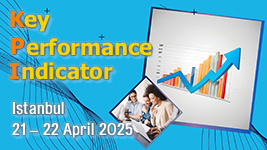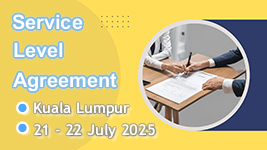FM56
- Other
- courses : Facilities Management, Jul 2013, London
Maintenance Technology Best Practices
Inspection, Analysis & Monitoring
Code : FM56
Date : 15 – 16 July 2013
Venue : London
![]()
The Course
Maintenance Best Practices are critical for every successful individual and company. It is the job of the maintenance professional to optimise the maintenance effort using a structured and systematic approach. This course covers all the fundamentals of Maintenance that a suitably qualified professional would be expected to carry out during his duty starting with the first steps and building up in a stair case fashion to a fully functional maintenance organisation.
The Goals
To provide a step-by-step guide to maintenance best practice starting with foundations and building up to best practice that will deliver maximum business benefits. By virtue of dynamic participation in this seminar, it is to be expected that delegates will make a substantial, positive impact on the maintenance regime within their home organisation.
At the end of this seminar, participants will have:
- A solid understanding of Maintenance optimization best practice techniques
- An understanding of a range of equipment failures and their implications to the operational organisation
- The ability to design a maintenance plan for the upkeep and maintenance inspections of static and rotating plant
- A practical approach to developing an action plan to utilise these technologies in their own areas of responsibility, fitting them into the overall maintenance strategy, and measuring benefits
The Delegates
This comprehensive 5-day programme has been designed to benefit both qualified new professionals as well as experienced professionals who might need to refresh their skills It is highly recommended that all Maintenance, Reliability, Engineering and technical support staff including leadership and management attend this workshop. If you and your company are interested in greatly increasing productivity, this will be a very valuable course.
The Process
This workshop is designed to be a hands-on, stimulating experience. The program is highly interactive with many discussion and facilitated practice sessions led by speakers who are at the forefront of their field.
The Benefits
Individuals exposed to this training will develop new insights into international best practices. They will learn why the best companies in the world see Maintenance management as the key to delivering the right quality product at the lowest costs.
Technical knowledge is key to effective control and peer respect within any maintenance organisation; when this is achieved personal satisfaction follows. This seminar will give the delegate the required level of technical knowledge and skill to achieve that personal satisfaction.
The Results
Organisations that are exposed to best practice methodologies in the area of Maintenance consistently are able to better compete on the global stage. The participants and their teams are better positioned to positively influence the organization with innovative ideas and techniques that in turn produce a higher performing organization.
On completion of this seminar the delegate will be able to critically analyse the methodologies employed within the organisation and instigate improvements where required.
The Programme Content
Day 1
Failure of Machines and Inspection Based Failure Analysis
Causes of Machinery Failure
- Wear Mechanisms
- Fatigue
- Fretting
- Corrosion and Electrolytics
Fundamental Machine Problems
- Balance Problems
- Alignment Problems
- Machinery Mounting Problems
Component Failure
- Plain Bearings
- Rolling Element Bearings
- Couplings
- Seals
- Gears Drives
- Belt Drives
Statistical Failure Analysis and Reliability
- Job Feedback and the Importance of History Records
- Pareto Effects
- Elementary Statistics
- Collection, Analysis, Representation and Interpretation of Statistical Data
- Reliability Models
- Maintenance Cost Optimisation
Condition Based Maintenance
- The Condition Based Approach
- What to Monitor and Where
- Condition Monitoring Systems
- Trending of Monitored Data
- Frequency of Measurement
- Parameter Symptom Limits
- Remaining Life Prediction
Day 2
Machinery Condition Monitoring
- General Purpose CM
- Thermal Monitoring
- Lubricant Monitoring
- The Essentials of Vibration Monitoring
- What is Vibration
- How to Measure Vibration
- Where to Measure Vibration
- How to Represent Vibration
Vibration Analysis
- Overall and Spectral Representation
- The Big Five Machine Faults
- Detecting Faults Using Vibration
- Diagnosing Faults Using Vibration
Tags: Facilities Management, Jul 2013, London





